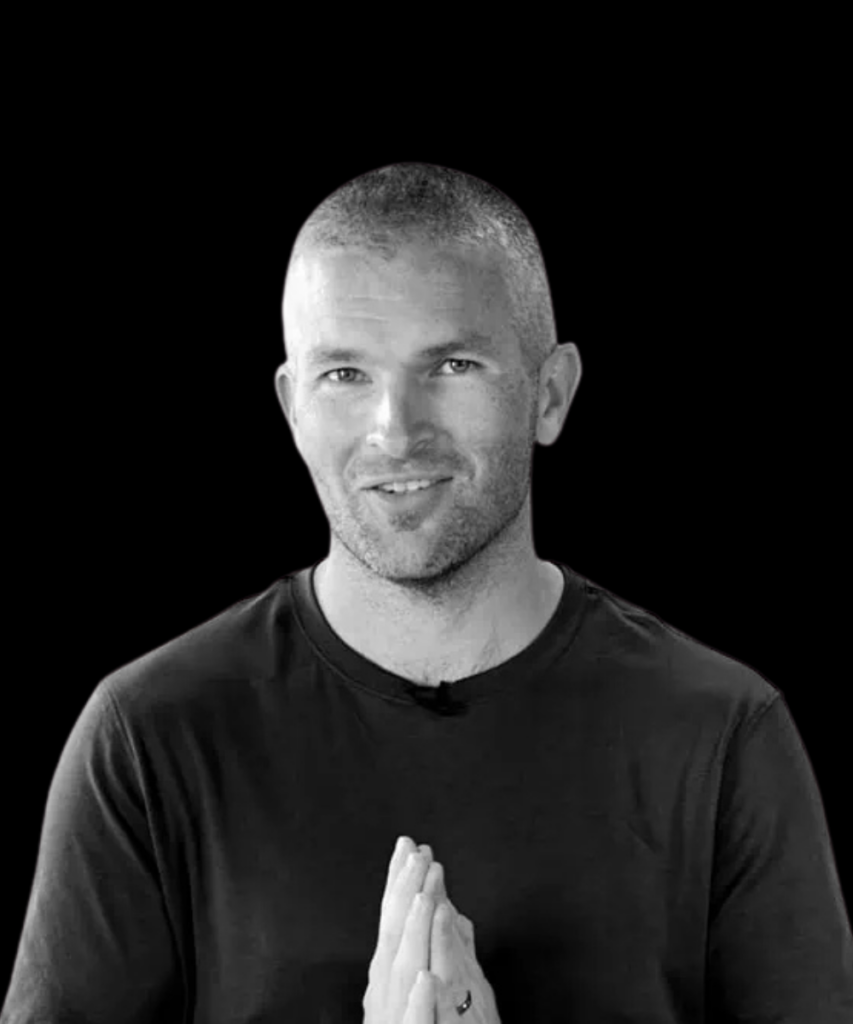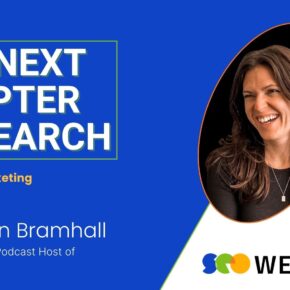
About Ross Hudgens
Ross Hudgens is CEO of Siege Media, an award-winning SEO and content marketing agency trusted by enterprise brands. A sought-after SEO and content strategy expert, he’s spoken at MozCon, Content Marketing World, and more. Ross merges data-driven insights with relatable storytelling. Offstage, he’s mastering the game of basketball and hunting Austin’s best restaurants.
Ross's SEO Week Session
- Title: The Evolving Content Marketing Playbook
- When to Watch: Day 2 | Tuesday April 29th | 10:45 am
- Session Abstract:
Content marketing never stays the same. Ross Hudgens will show what’s working now, what’s failing, and how to build a content strategy that holds up long-term.
- How to create content that ranks and drives meaningful results
- Why audience intent should shape every content decision you make
- The formats and strategies that will keep working—no matter what Google does
Transcript
Garrett: All right, welcome back to The Next Chapter of Search, hosted by iPullRank and SEO Week. If you haven’t already gotten your tickets, we will be in New York City, April 28th through May 1st. It’s going to be unbelievable, 36+ speakers across SEO content, AI, data. This is the conference; you need to show up. And today I am super excited because I am being joined by Ross Hudgens. Ross is the founder and CEO at Siege Media and he is going to tell us everything about content marketing and content strategy in the future. Yo, Ross, what’s going on, man?
Ross: Not too much, excited to be here. Super pumped for the conference. It’s going to be amazing.
Garrett: Dude, our industry, we were just talking before this, is so in flux. The last 12 months, 24 months have been ridiculous and it’s a significant impact to the way that agencies like ours are approaching content for our clients. What’s your perspective on the current state of SEO, specifically in the context of content?
Ross: Yeah, I mean, things are evolving rapidly, of course. I mean, we gotta be super comfortable using AI to improve our content. Generally, I think that’s important to stay cutting edge. Also, just on where the industry’s going, I feel more diversification is needed. Like we’re doing more, what we believe is traditional-feeling PR for our content and also thought leadership, and we’re doing more things like customer stories and that kind of piece. And it’s not that it doesn’t support search. It’s like, these are an aim to help search in a lot of ways. And that’s our opinion, like you build brand and all those things, you contribute to that so much so…I mean, there used to be a time where you could just do everything SEO and like that you’d rank, but now you kinda of gotta be great all across the board. It seems like…anyways, I don’t know what you’ve seen.
Garrett: Yeah, no, absolutely. And I mean, everything feels so much more holistic. SEO feels so much more of a support channel than a peer discovery channel. And to your point, it’s like content needs to service the audience more than just the specific channel. And it sounds like that’s kind of the approach regardless of the format of it.
Ross: Yeah, exactly. Yeah, just thinking more organic growth, essentially like we’re using that framing more and not just search. It’s like we’re contributing to referrals, direct traffic. And if you’re not thinking about how you’re impacting those things, that’s probably going to be problematic for that search traffic as well.
Garrett: Yeah, and so you’re actually, your presentation, which I’m super excited about, is kind of that content marketing playbook. Can you kind of of give a preview of why should people check out what you’re going to be sharing and what you’ll be talking about?
Ross: Yeah, I mean, as we kind of teed up there, so much of what we’re doing day-to-day continues to evolve. So, I’m going to share, essentially, how we’ve evolved that playbook year over year, month over month, and what that currently looks like to drive performance for our clients. So kinda of hinted at some of that, but we’re doing more like sales enablement content and thinking more about distribution outside of like cold outreach to the mid-tier bloggers for guest post links. Like…that is in a new state of affairs and kind of sharing what feels most impactful and the results and the lessons and the failures is sort of the goal of that presentation.
Garrett: I know, it’s so cool because you, with all your impressive portfolio of clients, it’s like you have a pulse on what is working, what’s not. You guys are always experimenting. What is something that the audience can do right now, tactically, that you’re recommending to people saying, get ahead of this?
Ross: Yeah, one easy kinda takeaway that I thought about more recently, especially if you’re on the B2B side, very many companies will have dropdowns in their top nav where it’s their use cases or solutions for that software, generally, or product. And then they’ll have the verticals they service. And we’re suggesting generally that you would have a mix of high-quality content that supports each of those connections.
Like an example for us might be we do digital PR and we service FinTech. So we should have thought leadership content or sales enablement content that serves that two prongs and also case studies that support those two prongs. So if we build that, we’re calling it like, and this is continually evolving so by the time I do the presentation, we’ll call it something different, but like a sales enablement Atlas, like we need that map fully baked out to find all those coverage gaps where we’re one, hopefully serving that user on our website to show them we know what we can do for digital PR for FinTech. And then when they get into our pipeline, have the case studies to actually then close that deal.
But a lot of companies will have many holes in that process. Like they don’t have certain case studies, maybe they just can’t get them, but also, they don’t have any like content that supports like actually ever getting that client in the door from a lead standpoint. So that kind of matrix idea is when we’re leveraging. And I think anyone can do that map in the B2B space and be like, do we have the proper coverage across all of these? If not, that’s some close some deals left on the table.
Garrett: I love it because it’s, you know, sometimes like once you initially do your site architecture, it feels like an afterthought and to kind of revisit that, come back to it and then think about it in the same way that, you know, both your audience and your search engines are, like, what’s that journey? So, to your point about hitting up those gaps and then ultimately making those kind of semantic connections for your audience to reduce the thinking and just almost predict where they’re going to go for them. It seems like, yeah, it seems like that’s exactly what you’re thinking about for your clients and just yourself.
Ross: Yeah, exactly. And I mean, all that thought leadership content, sales enablement, I mean, thought leadership in particular, hopefully that will generate sharing links that will support SEO specifically. I mean, that’s almost more of an organic growth tip, but that’s sort of where my head’s running at this moment. So I mean, I have no doubt doing all those things will drive eventual search performance as well.
Garrett: And that leads right into kind of my final question, which is like, as you’re thinking more about just organic growth holistically and the way that we’re thinking about SEO and content, what is the next chapter of search from your perspective? Like, where do you see all this going? How should we be thinking about it?
Ross: I mean, yeah, it’s going to, I think it’s going to be harder. I do think the channel is going to shrink a little bit. I think going up-market generally is smart. I mean, if you’re a small business owner listening to this, that’s not great news, but I think the big players are going to win naturally. So supporting them as an SEO is probably a smart thing for our careers generally. So, I think that’s a good idea.
So, kind of getting in front of that, and that in turn, those companies also are in the best position to do the other things productively like the organic growth, thought leadership. They have the audience and the traffic such that you could just put that in the site architecture and they can do productive things with that content, which may be a zero, day-zero startup. Well, unfortunately just not. They need some kind of base in traffic to kind of get value out of that, unfortunately.
Garrett: Do you think Google will do a better job of surfacing thought leadership, or do you think other channels will continue to be like just the focus for when you’re creating that content?
Ross: I mean, we’ve created big process docs for it, and to get our team thinking about it, I don’t say this is for search, like don’t look for keywords but of all the distribution ideas, I did put it at the very end. Like, don’t start with a keyword this thing could rank for. I know, I think Bernard of ClearScope had some posts on this, so like there is sometimes room on search results for like a counter-take, and not all thought leadership needs to be like, “this is wrong.” It just means like, how does my product fit into this idea in a way that we’re positioned to do that? I don’t think it has to be some like super aggressive angry take necessarily. Might be the positioning a lot.
If you do that, yeah, I think there is potential to get shown on search, but it’s more so that may be more likely to create brand – that will contribute to you showing up on search. And then if you show up on search on those other, like through other articles, then they’ll find your thought leadership adjacent to it, like in your navigation-related linking. And you can be smart about other things like include influencers and still promote it on social. And you have an email newsletter, hopefully. Things all that should be additive enough to definitely warrant doing this stuff.
Garrett: Yeah, it’s so interesting. It’s such a different equation in terms of visibility and market share. And the other big question we’re all thinking about is like, will this ultimately be surfaced through the conversational platforms? Like whether they’re adopted or not, to what extent will that, I mean, you mentioned brand. Brand just seems to be the kind of resounding answer for the future of content in general.
Ross: Yeah, I mean, it’s the most future-proof. We can kind of be future, current state on these things. And even current state seems to be pretty brand rewarding generally, but it seems pretty defensible long-term to have a defensible brand that lives outside of these things. And if we contribute to that, it seems like search is going to be rewarded too.
Garrett: I love it. So, I mean, I’m always bullish on content. You create good content, you build your brand, you’re going to be found. So if you guys want to learn more or see what Ross has to drop – SEO Week, end of April, New York City, catch him there. This is Garrett Sussman of iPullRank signing off, and we will see you in the city. Peace.
Ross: Thank you.

